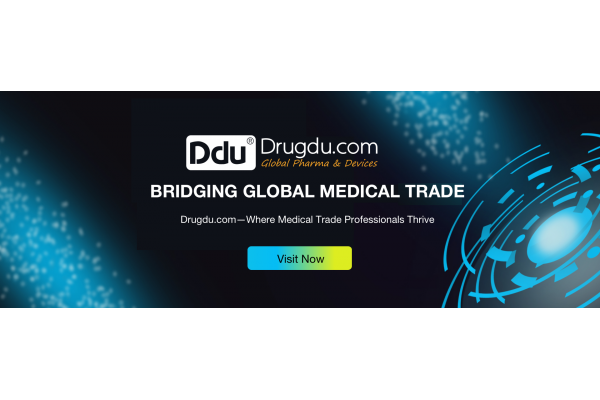【EXPERT Q&A】What are the differences between generic drugs and original drugs?
February 7, 2025
Source: drugdu
 850
850
Drugdu.com expert's response:
Detailed Comparison Between Generic Drugs and Originator Drugs
I. Definition and Background
Originator Drugs: These are innovative drugs that are originally researched and developed by companies that hold the patent rights for the medication. These new drugs typically undergo long-term safety evaluations and complete Phase I to III (and sometimes Phase IV) clinical trials, followed by continuous post-marketing monitoring of their efficacy. The research and development (R&D) of originator drugs are usually initiated by large, financially strong pharmaceutical companies, taking up to fifteen years from R&D to market launch, with costs reaching billions of dollars.
Generic Drugs: These are drugs that are developed after the patent protection period (typically 20 years) of an originator drug expires, based on research into the main active ingredient of the originator drug. The R&D process for generic drugs is relatively straightforward, involving the replication of the main molecular structure of the originator drug and passing simple clinical trials to meet relevant regulatory standards before being approved for market launch. The total R&D timeline is generally 10 to 13 months, though some sources indicate it could be 1 to 2 years.
II. R&D and Clinical Trials
Originator Drugs: The R&D process is lengthy and costly, involving the screening of thousands of compounds, preclinical and clinical trials (including Phases I to III, and sometimes IV), and long-term post-marketing monitoring.
Generic Drugs: These drugs do not require extensive original research. Instead, they replicate the main molecular structure of the originator drug and demonstrate bioequivalence through trials, showing similar drug absorption rates and extents in humans.
III. Production Process and Excipients
Originator Drugs: These drugs typically have high standards in terms of raw material purity, production processes, and formulation technologies. Stringent requirements are placed on raw material grades, purity, feeding sequences, and manufacturing processes. The excipients used are also carefully selected to ensure drug stability and consistency, thereby guaranteeing efficacy.
Generic Drugs: Although they retain the main active ingredient of the originator drug, differences in manufacturing processes and excipients may result in slightly inferior efficacy compared to the originator drug.
IV. Regulatory Submission and Approval Standards
Originator Drugs: These drugs must complete a comprehensive new drug application process, adhering to strict international standards and undergoing rigorous risk assessments before being approved for market launch.
Generic Drugs: These drugs do not undergo a full clinical trial phase. Instead, they ensure that they have the same active ingredient, dosage form, dosage, indication, and route of administration as the originator drug. They follow relatively lenient standards and typically follow a streamlined new drug application process.
V. Pricing
Originator Drugs: Due to the significant R&D investments, the pricing is relatively high.
Generic Drugs: These drugs bypass much of the R&D timeline and costs, resulting in more affordable pricing.
VI. Efficacy
The National Medical Products Administration (NMPA) of China mandates generic drug consistency evaluations, which began in 2016. Although there are differences in the R&D and production processes between generic and originator drugs, China has implemented generic drug consistency evaluations to improve their quality and efficacy. This evaluation aims to make generic drugs clinically interchangeable with originator drugs in terms of quality and efficacy. However, due to differences in production processes, excipients, and clinical trials, the quality and efficacy of generic drugs may still be inferior to those of originator drugs.
VII. Target Populations and Recommendations
High-Risk Patient Groups: For elderly individuals, children, pregnant women, and immunocompromised patients, it is recommended to choose originator drugs to ensure efficacy and safety.
Patients with Limited Financial Resources: These patients may consider generic drugs, but they should pay attention to the consistency evaluation results regarding their quality and efficacy.
In summary, generic drugs and originator drugs differ significantly in terms of definition, R&D and clinical trials, production processes and excipients, regulatory submissions and approval standards, pricing, and efficacy. Patients should consider their own medical conditions, financial resources, and doctor's advice to make an informed choice about which drug is most suitable for them.

Read more on
- 【EXPERT Q&A】What are the registration and regulatory (market access) requirements for Nipah virus IVD in vitro diagnostic test reagents in India, the European Union, and the WHO? February 9, 2026
- 【EXPERT Q&A】Can the registration and access of medical device products in Brazil be accelerated if they already have FDA and CE certifications? February 6, 2026
- 【EXPERT Q&A】What are the requirements of the EU medical device regulations for General Safety and Performance Requirements (GSPR)? February 4, 2026
- 【EXPERT Q&A】Why is it necessary to obtain a medical device business license when selling medical devices? February 2, 2026
- 【EXPERT Q&A】Is it risky to register Class III medical devices? January 28, 2026
your submission has already been received.
OK
Subscribe
Please enter a valid Email address!
Submit
The most relevant industry news & insight will be sent to you every two weeks.



